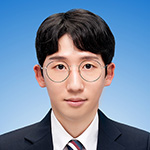620兆 국가첨단전략산업·소부장 특화단지 13곳 지정
기사입력 2023.07.21 12:20
▲국가첨단전략산업 특화단지(자료:산업부)
용인·평택·안성, 반도체 첨단·소부장 벨트 완성
국가첨단전략산업 614조원·소부장 6조원 투입
반도체업계, 특화단지 지정에 환영 입장 표명
국가첨단전략산업 614조원·소부장 6조원 투입
반도체업계, 특화단지 지정에 환영 입장 표명
반도체를 비롯한 전기차·이차전지 등 첨단산업의 생태계 조성과 산업 발전·육성에 기반이 될 국가첨단전략산업 및 소부장 특화단지 조성이 본격화되고 있다. 치열한 유치전 끝에 선정된 국가첨단전략산업 특화단지 7곳과 소부장 특화단지 5곳이 공개되며 지자체 및 관련 업계가 환영의 입장을 내비쳤다.
■ 민간 투자 총 614조원, 정부 행정·세제 등 지원
21개 지자체서 치열한 유치전을 펼친 국가첨단전략산업 특화단지 조정사업에 7개 지자체가 선정돼, 2042년까지 민간투자 총 614조원이 투자가 이뤄질 것으로 전망된다.
산업통상자원부(이하 산업부)는 총 7개의 국가첨단전략산업 특화단지를 지정하고, 2042년까지 민간투자 총 614조원을 뒷받침할 계획이라고 20일 발표했다.
지정된 특화단지로는 반도체 분야에 △용인·평택 562조원 △구미 4조7,000억원, 이차전지 △청주 4조2,000억원 △포항 12조1,000억원 △새만금 6조4,000억원 △울산 7조4,000억원, 디스플레이 천안·아산 17조2,000억원이 지원된다.
특히, 정부는 세계 최대 반도체 클러스터의 육성을 위해 대규모 민간 투자가 예정된 용인·평택 지역을 특화단지로 지정해, 현재 가동 중인 이천·화성 생산단지와 연계 육성을 도모할 계획인 것으로 전해졌다.
합계 총 614조원의 민간투자규모로 정부는 이번에 지정된 특화단지에는 민간투자가 적기에 이루어질 수 있도록 △인·허가 신속처리 △킬러규제 혁파 △세제·예산 지원 △용적률 완화 △전력·용수 등 기반시설을 포함한 맞춤형 패키지를 지원한다.
인·허가 타임아웃제를 도입해 인·허가 신속처리 요청 후 60일 내 인·허가가 미처리될 시 처리한 것으로 간주하는 제도로 행정 절차에 의한 지연으로 인한 문제가 최소화될 것으로 기대된다.
산업부는 특화단지 공모에서 총 21개 지역이 신청했으며, △선도기업 유무 △신규투자 계획 △산업 생태계 발전 가능성 △지역균형발전 등을 중점적으로 평가해 선정한 것이라고 밝혔다.
올해 하반기에는 특화단지별로 맞춤형 세부 육성계획을 마련하고, 산·학·연 협력과 기업 애로 해소 등을 원스톱으로 지원하는 ‘범부처 지원 협의체’도 구축할 예정이다.
이에 더해, 지난 5월 국가첨단전략산업으로 신규 지정된 바이오 산업에 대해서도 올해 하반기에 특화단지를 공고하여, 내년 상반기 중에는 특화단지를 지정할 계획이다.
또한, 8곳의 ‘국가첨단전략산업 특성화대학’을 선정해 연내 총 540억원을 지원한다고 발표했는데, 이번에 지정된 8곳의 국가첨단전략산업 특성화대학에는 수도권에 △서울대(회로·시스템, 소자·공정) △성균관대(차세대 반도체) △명지대-호서대(소재·부품·장비, 패키징)과 비수도권에 △경북대(회로·시스템, 소자·공정, 소재·부품·장비) △고려대 세종캠퍼스(첨단반도체 공정장비) △부산대(차량반도체-파워반도체) △전북대-전남대(차세대 모빌리티반도체) △충북대-충남대-한기대(시스템반도체, 파운드리반도체)가 지정됐다.
지정된 8개 특성화대학은 △융복합 교육과정 설계 △우수교원 확보 △실습 및 교육환경 구축 등에 예산이 투입되며, 향후 정부는 다른 첨단전략산업으로도 특성화대학 지정을 확대하고, 지난 5월 선정한 ‘국가첨단전략산업 특성화대학원’과의 연계를 통해 산업현장의 수요에 맞는 실무·고급인력을 키워나갈 계획인 것으로 전해졌다.
이창양 산업부 장관은 “이번 3차 첨단전략산업위원회는 첨단전략산업 특화단지와 특성화대학을 지정해 초격차 혁신 생태계를 조성하는 데 의미가 있다”고 강조하면서, “그간 정부가 추진한 △첨단전략산업 지정(반도체, 디스플레이, 이차전지, 바이오) △투자세액공제 확대 △15개 국가산단 지정을 통한 압도적 제조역량 확보 △소부장 특화단지를 통한 안정적인 공급망 구축 등 ‘첨단산업 육성 3대 전략’을 지속적으로 추진해나가겠다”는 계획을 밝혔다.
■ 반도체·미래차·바이오 분야 소부장 특화단지 新조성
▲신규 5개 소재부품장비 특화단지 주요내용(자료:산업부)
2021년 2월 5개 분야 소부장 특화단지를 최초 지정한 이후 2년 6개월 만에 5개 특화단지가 추가 지정된다.
지난 20일 개최된 ‘소재부품장비 경쟁력강화위원회’에서 반도체, 미래차 등 신산업 분야로 지정대상을 확대하고 반도체에 △부산 △경기 안성, 미래차 분야에 △전남 광주 △대구, 바이오에 △충북 오송 등 5개 특화단지를 추가 지정한다고 밝혔다.
이번 특화단지 조성에는 약 6조7,000억원의 기업 신규투자가 이뤄질 예정이다.
반도체 특화단지는 반도체 장비, 전력반도체 등 국내 반도체 생태계 강화를 추진한다. 경기 안성시에 반도체 핵심 공정 관련 장비 공급망 강화에 9,000억원과 부산광역시에 전기차 수요에 대비한 차세대 전력반도체 생태계 구축을 위해 8,000억원의 기업 투자가 투입된다.
미래차 분야 특화단지는 자율주행, 전기차 등 미래차 전환에 따라 높은 수요가 발생될 것으로 기대되는 핵심부품들의 자립화를 추진한다. 전기차 모터 자립률 50%에서 90%로 높이는 등의 목표를 설정한 것으로 알려졌다.
아울러 바이오 분야 특화단지는 코로나19 이후 바이오 의약품 글로벌시장이 크게 성장함에 따라 백신 등 의약품 제조공정에 필수적인 원부자재 자립을 목적으로 한다.
정부는 특화단지 생태계 조성을 위해 수요-공급기업 간 공동 연구개발(R&D), 테스트베드, 사업화 등 기술자립과 국내복귀 기업지원, 지방투자 등 단지 내 기업유치를 지원하고, 특화단지별 추진단을 구성하여 규제개선과 기업 건의사항 등을 원스톱으로 지원할 계획이다.
이창양 산업통상자원부 장관은 “지난 6월 신설된 ‘소재부품장비 공급망 센터’를 활성화하고 올해 하반기에 ‘산업공급망 3050 정책’을 수립해 체계적인 공급망 관리를 추진하겠다”고 밝혔다.
■ 반도체산업협회, 특화단지 지정에 환영 입장
반도체업계는 산업통상자원부가 발표한 ‘국가첨단전략산업 및 소부장 특화단지’ 지정에 대해 적극 환영한다는 입장을 밝혔다.
20일 한국반도체산업협회(KSIA)는 반도체분야 특화단지 지정에 반도체 분야 특화단지로 선정된 지자체에 축하의 메시지를 전하며 정부의 산업 생태계 지원 정책에 환영을 표했다.
최근 업계는 반도체를 둘러싼 글로벌 경쟁 환경의 급격한 변화로 소재·부품·장비를 비롯한 반도체 생태계 전반의 경쟁력 강화 및 동반 성장이 반드시 필요한 상황이었다.
업계는 이번 특화단지 지정을 통한 인프라, 인허가, R&D, 인력 등 종합적인 산업 생태계 지원 정책이 반도체산업을 비롯한 국가첨단전략산업 및 소부장산업의 미래 경쟁력 확보에 큰 도움이 될 것으로 기대했다.
KSIA는 “반도체업계는 정부 지원을 동력으로 특화단지 내 적극적인 투자가 이루어질 수 있도록 노력할 것이며, 이를 통해 반도체산업이 국가 경제 발전에 기여할 수 있도록 최선을 다하겠다”며 “아울러 신속한 특화단지 육성을 위해 정부와 지자체 간 유기적인 협력이 이루어질 수 있도록 적극 지원하겠다”고 밝혔다.
또한 “특화단지 내 기업의 신규 투자와 운영이 원활히 이뤄질 수 있도록 정부와 지자체의 지속적인 관심과 지원을 당부한다”고 전했다.
많이 본 뉴스
[열린보도원칙] 당 매체는 독자와 취재원 등 뉴스이용자의 권리 보장을 위해 반론이나 정정보도, 추후보도를 요청할 수 있는 창구를 열어두고 있음을 알려드립니다.
고충처리인 장은성 070-4699-5321 , news@e4ds.com






